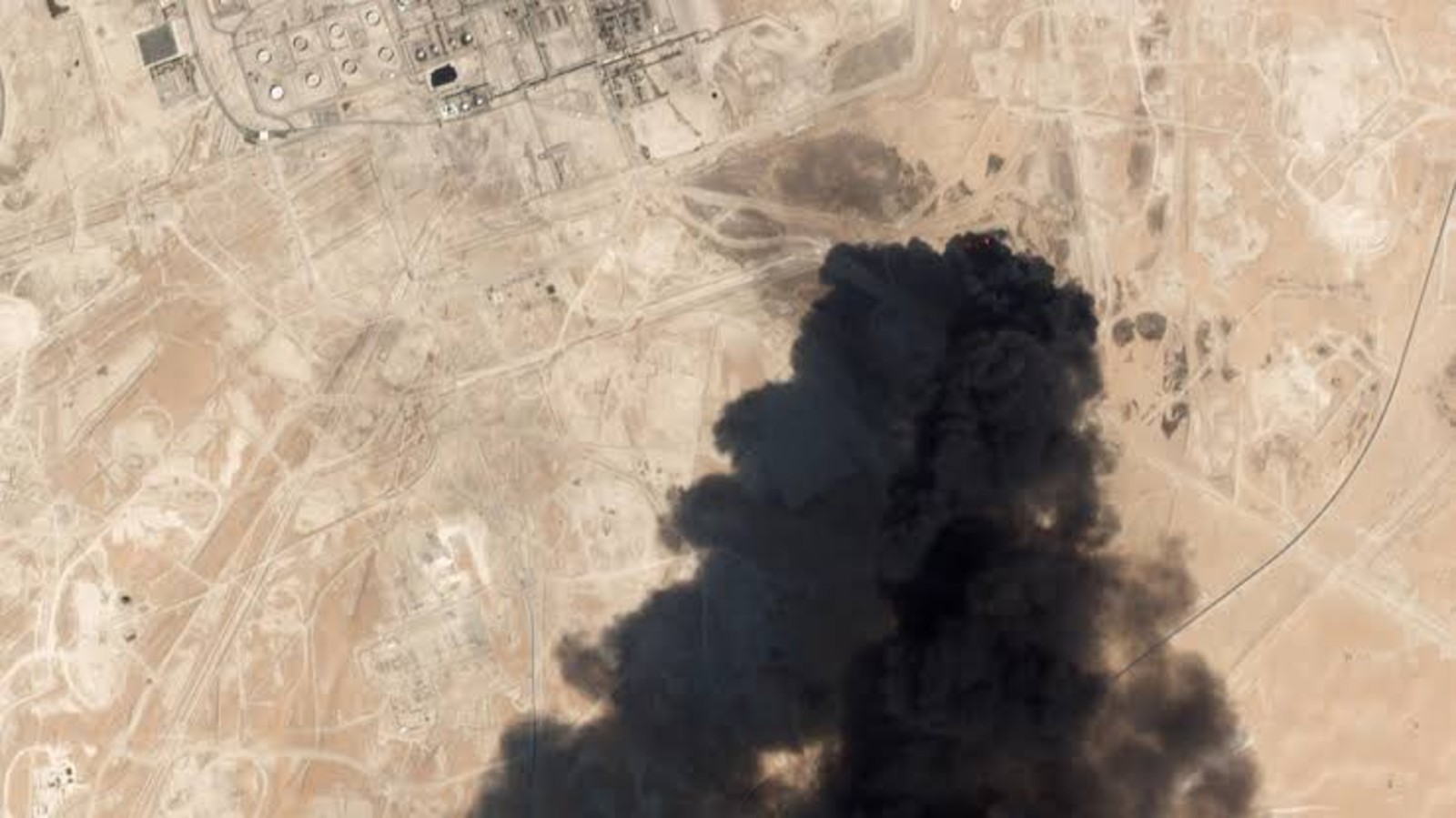There will be no talks between Iran and the US, says Iran’s supreme leader

And now, Season 2 of how a remote-controlled plane disrupted the global oil supply: US President Donald Trump dialed back his rhetoric about Iran’s responsibility for Saturday’s attack on Saudi Aramco’s Abqaiq facility, which has disrupted 5.7 mn barrels of oil a day, or roughly 5% of global supply. Using more muted language than Monday’s “locked and loaded” tweet, Trump said that while the US was more prepared for military conflict than at any other time in history, it was something he would like to avoid. Iran’s supreme leader Ayatollah Ali Khamenei said on state television that there will be no talks between Iran and the US at any level,following reports circulating about a possible meeting between Trump and his Iranian counterpart, Hassan Rouhani, at next week’s UN General Assembly meeting. Khamenei said that all negotiations are off the table unless the US returns to the 2015 nuclear deal which it left in May 2018.
Mixed reports are emerging about when Aramco could resume full production: Top Saudi officials said yesterday that output was recovering more quickly than initially forecast, and that the kingdom was close to restoring 70% of the 5.7 mn barrels per day lost, according to an unconfirmed report from Reuters. Aramco’s output could be fully back in two to three weeks, they reportedly said. This directly contradicts earlier reports, however, which suggested that it could be months before full resumption was possible. A former corporate planning adviser to Aramco said that Abqaiq’s stabilization towers, of which five out of 18 were taken out, require specialized parts that could take weeks or months to procure. “Damage to the Abqaiq facility is more severe than previously thought,” said a chief oil analyst at Energy Aspects.
A delay to Aramco’s IPO is looking possible: Officials are reportedly discussing pushing the company’s listing on the Saudi exchange, originally slated for November, but have said they will wait for a full assessment of the damage from the attack before making a decision. While executives are expected to hold planned presentations and meetings, they are debating pushing the IPO itself until full production has resumed, sources said. There has been much speculation as to how the attacks will figure in any investor valuation, as they highlight the risk and vulnerability of Saudi’s oil infrastructure. Some advisers say the market may push for a discount of as much as USD 300 bn — bad news for Crown Prince Mohammed bin Salman, who was pushing for a valuation of USD 2 tn before the attacks, even as many advisers said USD 1.5 tn was more realistic.
Oil prices fell steeply on Tuesday, but general market uncertainty remains high: Brent crude prices fell from a high of just under USD 69/bbl to around USD 65/bbl towards the end of the day, and USD-denominated bonds issued by the Saudi government and Aramco also rebounded, following the Reuters report cited above, in a sign that investor concern might be abating. General market concerns, however, remain high. US consumers are being warned to expect higher energy prices in the short-term, and media outlets such as the Wall Street Journal are asking if consumers in Asia, heavily reliant on Saudi oil, will now need to look to Iran to supply their energy needs.
That’s still too close to call, as Egypt has based its fuel spending budget on an oil price of USD 68/bbl. Its hedging contracts with international banks are capped at that price.